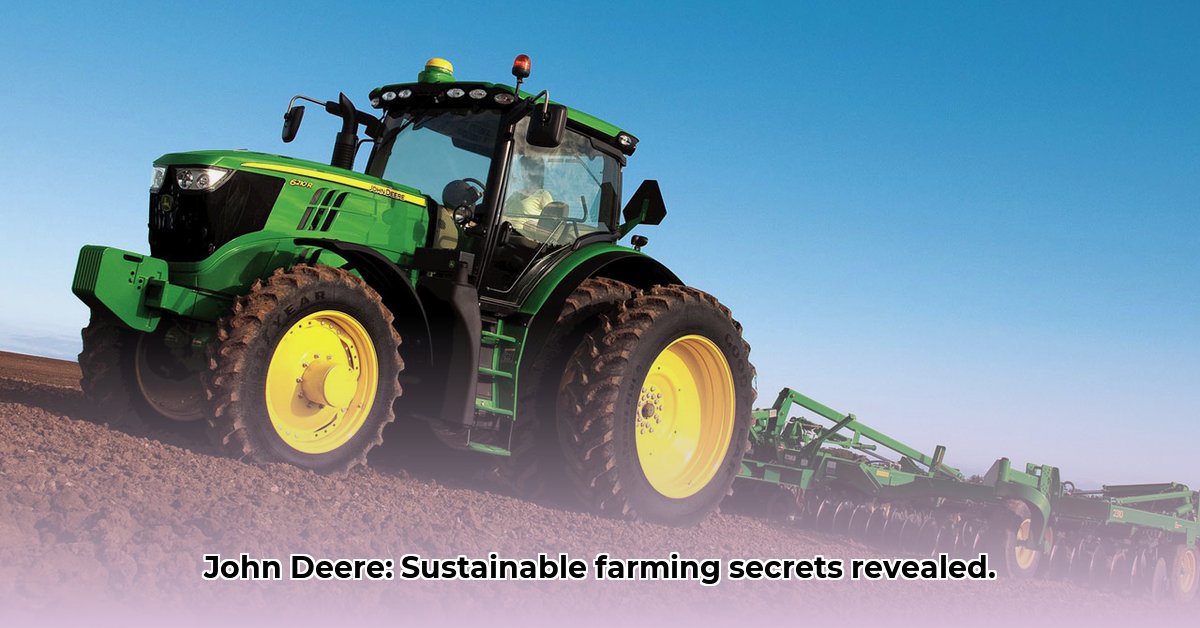
John Deere Tractors and the Future of Sustainable Agriculture
John Deere tractors: iconic imagery often seen in captivating wallpapers, but their significance extends far beyond aesthetics. These machines are integral to a transformative shift in agriculture, pushing the boundaries of productivity while simultaneously minimizing environmental impact. This article delves into how John Deere’s technological advancements are empowering farmers to embrace sustainable practices, improving efficiency and resource management. We’ll explore precision farming techniques, the role of data-driven decision-making, and the challenges and collaborations necessary to achieve widespread adoption. For more information on operator comfort, check out the Deere tractor seats page.
Precision Farming: Doing More with Less
The visually striking images of John Deere tractors often highlight the essence of modern precision farming. GPS-guided tractors, for example, precisely plant seeds only where needed, resulting in reduced seed waste, fertilizer usage, and water consumption. This targeted approach minimizes environmental impact while optimizing resource utilization. How efficient is this? Studies show a potential reduction in fertilizer usage by up to 20%, a significant contribution to environmental sustainability.
Data-Driven Decisions: The Power of Information
Precision farming transcends mere machinery; it’s fundamentally about data. Sophisticated sensors integrated into John Deere equipment capture a wealth of information – soil composition, moisture levels, crop health, and weather patterns – providing farmers with real-time insights. This data enables highly targeted interventions, such as applying precisely the correct amount of water or fertilizer to specific areas of a field, maximizing yield while minimizing waste. This data-driven approach is transforming how farmers manage their operations, leading to increased efficiency and environmental responsibility. But isn't this approach too complex for the average farmer?
“The key is not just providing the technology, but empowering farmers with the knowledge and support to utilize it effectively,” says Dr. Anya Sharma, Agricultural Technology Expert at the University of California, Davis. “Data interpretation and training are as critical as the machinery itself.”
Overcoming the Challenges: A Collaborative Approach
Despite the advantages, transitioning to precision farming presents considerable obstacles. The initial investment in technology can be substantial, demanding significant financial resources from farmers. Reliable high-speed internet access, essential for data transmission and analysis, remains a challenge in many rural areas. Furthermore, farmers require adequate training to effectively utilize these sophisticated tools.
Addressing these challenges requires a collaborative effort. Government subsidies and financial incentives can make technology more accessible, while comprehensive training programs and readily available technical support are crucial. Manufacturers, such as John Deere, can play a pivotal role in developing user-friendly technology and offering flexible financing options. The combined efforts of stakeholders are essential for a successful transition to sustainable agriculture.
Building a Sustainable Future: A Shared Responsibility
Sustainable agriculture isn't solely the responsibility of farmers; it's a collective endeavor. Consumers, businesses, and governments all play a crucial role in supporting a food production system that prioritizes both efficiency and environmental stewardship. By embracing innovation, addressing the challenges proactively, and fostering collaboration, we can build a more sustainable future for food production. What practical steps can individuals take to support this transition?
Key Takeaways:
- John Deere's technology is driving a significant shift toward sustainable farming practices.
- Precision agriculture, enabled by data-driven decision-making, offers considerable potential for increased efficiency and reduced environmental impact.
- Addressing financial barriers, improving internet access in rural areas, and providing comprehensive training are crucial for broader adoption of sustainable farming technologies.